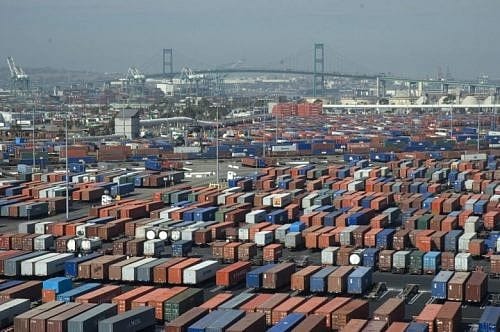Punitive Trump trade plan would zap US poor, study says

BOSTON – Donald Trump's plan to slap punitive import taxes on countries like China and Mexico would lead to the erection of global trade barriers and impose "truly catastrophic" costs on the poorest American households, according to a study released Thursday.
The New York billionaire and presumptive Republican presidential nominee seems to love playing the trade card in claiming overly conciliatory agreements with nations such as China and Mexico have stacked the deck against the U.S. He has blamed job losses on the deals along with what he describes as a decline in American competitiveness in the global economy.

